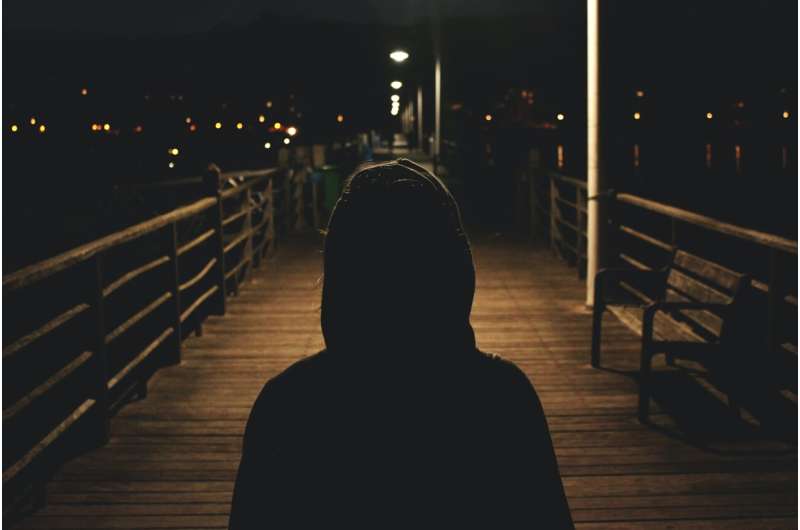Night owls show enhanced fear acquisition, which may increase the risk of developing anxiety

A new study shows that the higher vulnerability of evening chronotype individuals (individuals with the propensity to be more productive at night or at dawn) to anxiety and related disorders may be mediated by altered emotional learning.
Chronotypes are our circadian preference profiles; that is, they refer to the differences in performance that each person has in relation to the periods of sleep and wakefulness throughout the 24 hours of the day. We can be morning types if we prefer to wake up early and we have good performance in activities that start in the morning; evening types if we are more productive at night or at dawn, and prefer to stay up later); or intermediate if we easily adapt to morning and evening schedules.
Circadian rhythms have been increasingly studied because they can help to understand the onset of mental disorders such as anxiety and post-traumatic stress disorder (PTSD). In this vein, researchers Chiara Lucifora, Giorgio M. Grasso, Michael A. Nitsche, Giovanni D'Italia, Mauro Sortino, Mohammad A. Salehinejad, Alessandra Falzone, Alessio Avenanti and Carmelo M. Vicario consulted the classic Pavlovian paradigm of fear conditioning to study the neurocognitive basis of the association between chronotype and fear responses in healthy humans.
In the paper "Enhanced fear acquisition in individuals with evening chronotype. A virtual reality fear conditioning/extinction study", published in the Journal of Affective Disorders, in August 2022, the researchers from Università Degli Studi di Messina and Università di Bologna (Italy), Leibniz Research Center for Working Environment and Human Factors (Germany) and Universidad Católica Del Maule (Chile) explain that they enrolled 40 participants recruited from among students from the University of Messina; 20 with evening chronotype and 20 controls (i.e., intermediate chronotype) to complete a 2-day Pavlovian fear learning and extinction virtual reality task.
"To the best of our knowledge, only one study to date explored the role of chronotypes on fear acquisition and extinction in healthy humans, but did not test intermediate chronotypes, the ideal control group as they are the most frequent chronotype in the population," explains researcher Carmelo M. Vicario.
The results obtained in the two groups showed a higher fear acquisition response in evening chronotype individuals than in the intermediate chronotype participants, confirming prior evidence that associated the evening chronotype with a higher risk of anxiety disorders and PTSD.
"This study provides new insights about the influence of circadian rhythms on cognitive and affective processes, suggesting that the higher vulnerability of the evening chronotype to anxiety and related disorders may be mediated by altered fear acquisition," says Vicario.
More information: Chiara Lucifora et al, Enhanced fear acquisition in individuals with evening chronotype. A virtual reality fear conditioning/extinction study, Journal of Affective Disorders (2022). DOI: 10.1016/j.jad.2022.05.033





















